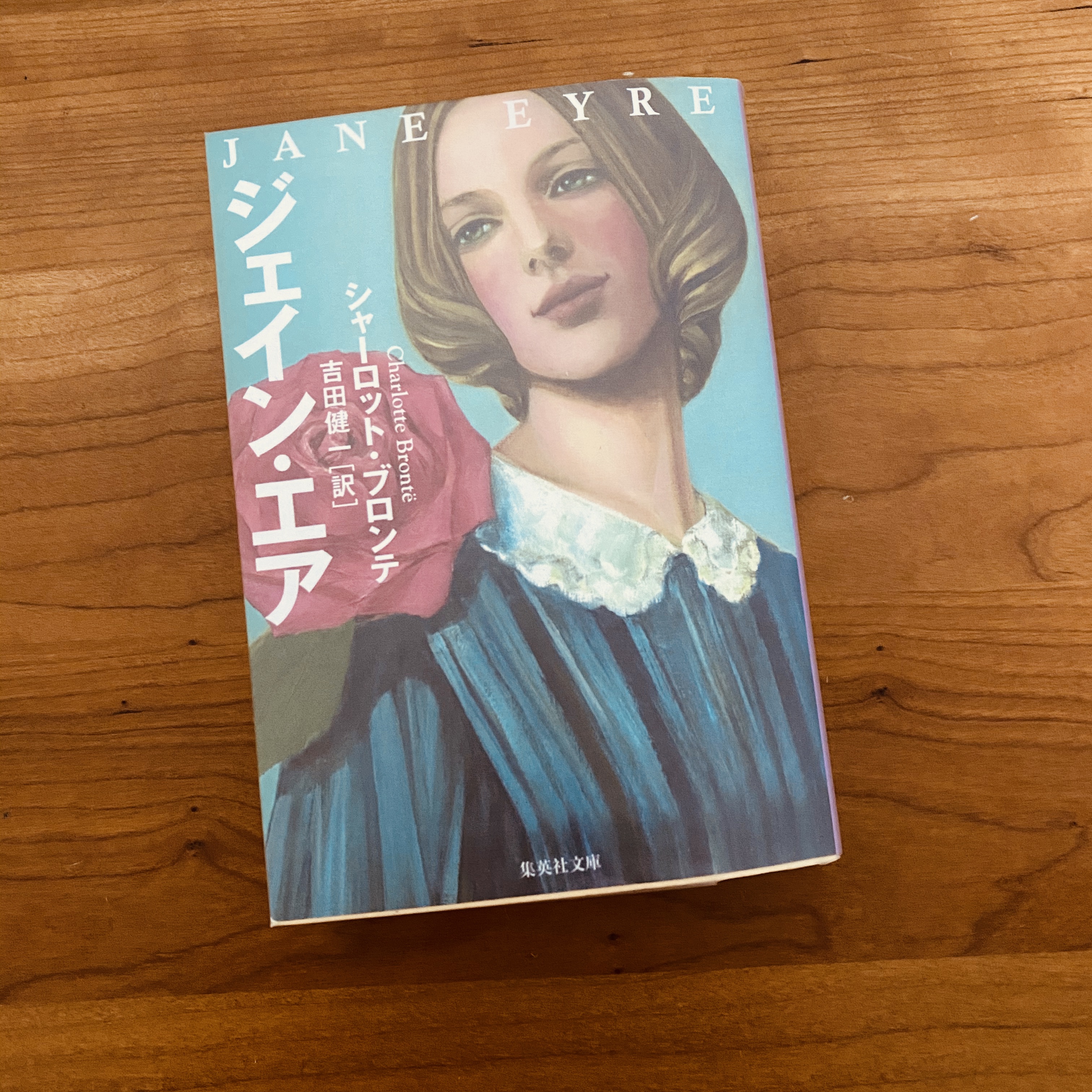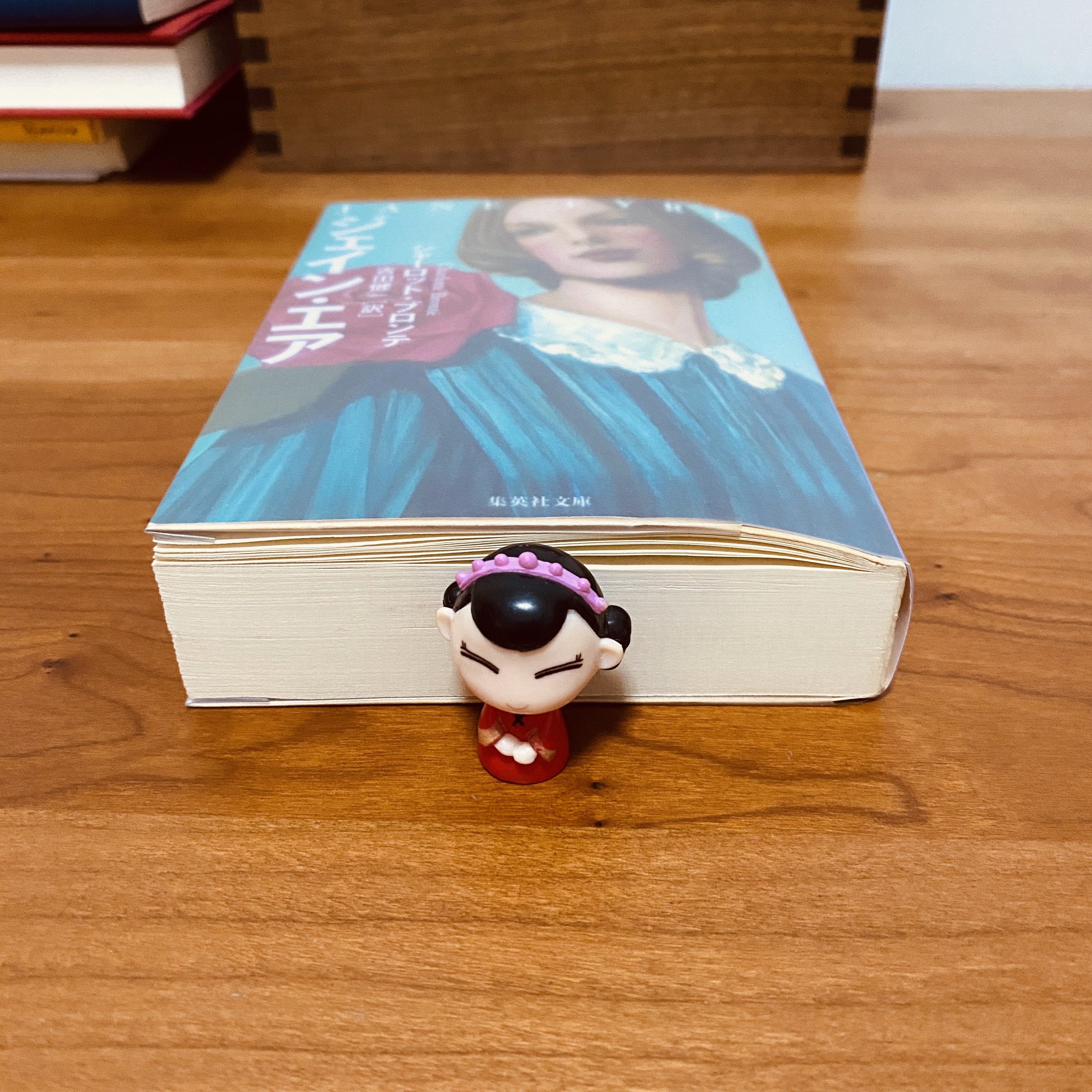很久以前读过《简爱》,记忆只剩些许片段了(或许忘光了),后来了解了吉田健一翻译过这本书,就很有兴趣想读一下(我对他不是特别熟悉,不过看其他作家的书时,时不时会提起他,就了解过一些)。我看日文版的《简爱》,大多也是女性翻译的,这本就显得有点特别了。挺想知道他是如何遣词造句的。
这本书有些厚度,像一个小人这般高,拿在手上有点不方便。字密密麻麻的,又觉得稍不留神就忘了读到哪一句了。好几次拿起来读了几页又放下了。这两天又把它拿在手上,定下心看了三章,就开始习惯了。感觉这又将是一段愉悦的读书之旅。


第三章有一首歌,是书里的Bessie唱的,我读着日文,尽管没有旋律,可感觉字意已然是旋律了,给人悠远又忧愁的感觉。像是一种心情的游荡,在遥远的地方。简爱寄居在别人的家里,受了欺凌,无处诉说。她在思索逃离和自身的处境。歌中的一句句“孤儿”仿佛也是简爱的剪影。这首简爱听过无数遍的歌,偏偏此刻感到极其悲伤。难怪唱完歌后,Bessie会说——そんなに泣かないで、ジェインさん。
在这里记一下。
むかし、大むかしに
私たちがさすらいの生活をしていたころ
私は足が痛くて体は疲れ、
道は遠くて山は険しい。
まもなく哀れな孤児の行く手に
黄昏が月もなく立ちふさがるにちがいない。
なぜ私を荒野が広がり、灰色の岩が重なっている
こんなに遠いところに一人で行かせたのか。
人間は無慈悲で親切な天使だけが
哀れな孤児の行く方を見守ってくれる。
しかし夜の風は向こうから優しく吹き、
雲はなくて星が静かに輝き、
髪が哀れな孤児を保護し、
慰め、気をとりなおさせてくれる。
私がこわれた橋から落ち、
妖しい光にひかれて沼に迷うことになっても、
それでも私の父である神は希望を持たせ祝福して
哀れな孤児をその胸に抱きとってくれる。
私に家も寄る辺もなくても、
一つの考えが私を力づけてくれるはず。
天国が私の家で、そこでは休める。
神こそ哀れな孤児のささえ。
In the days when we went gipsying,
A long time ago.
My feet they are sore, and my limbs they are weary;
Long is the way, and the mountains are wild;
Soon will the twilight close moonless and dreary
Over the path of the poor orphan child.
Why did they send me so far and so lonely,
Up where the moors spread and grey rocks are piled?
Men are hard-hearted, and kind angels only
Watch o’er the steps of a poor orphan child.
Yet distant and soft the night breeze is blowing,
Clouds there are none, and clear stars beam mild;
God, in His mercy, protection is showing,
Comfort and hope to the poor orphan child.
Ev’n should I fall o’er the broken bridge passing,
Or stray in the marshes, by false lights beguiled,
Still will my Father, with promise and blessing,
Take to His bosom the poor orphan child.
There is a thought that for strength should avail me;
Though both of shelter and kindred despoiled;
Heaven is a home, and a rest will not fail me;
God is a friend to the poor orphan child.
